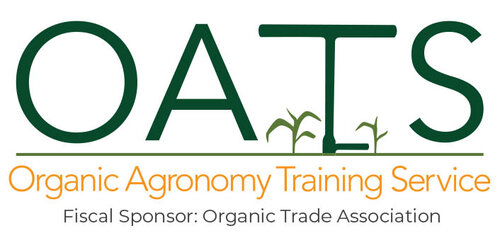Beyond the Build - Sustainable High Tunnel Management
An in-person workshop by OATS
NRCS-funded high tunnels have been a game changer for many specialty crop farmers, especially in urban ag. While they are great for increasing farm profitability, these unheated structures require horticultural practices that are quite different from common field practices in areas like fertility, pest management, and crop culture.
At this event, you’ll learn hands-on in the high tunnels from farmers and ag professionals about environmental controls, soil management, growing tomatoes and cucumbers, and a lot more. Afterwards you will understand high tunnel growing better.
During lunch (provided) you can meet the other ag advisors and farmers attending from around Wisconsin. In the afternoon the farmers will discuss fertility and pest management practices in the high tunnel (including looking at 5 years of soil test results).We’ll end with a tour of the farm’s equipment and a demo of tools used to manage their permanent raised beds.
When: August 1st, 9:30am - 3:00pm CT
Where: Village Farmstead - 4020 E Fitzsimmons Rd, Oak Creek, WI 53154
Who: Ag advisors that work with vegetable growers - Extension, NRCS, agronomists, consultants, and farmers.
How Much: $25.00, includes lunch
Registration Deadline: July 27th, 2024
Local Host Organizations: Village Farmstead Farm, UW-EXtension, NRCS
AGENDA
9:30–10:00 Arrival and introductions by Sam Oschwald Tilton, OATS Training Specialist
10:00-11:00 Tour of Village Farmstead high tunnels by Sara Krohn and Sam Odin, Farmers at Village Farmstead
11:00-11:40 Past, present, and future of high tunnel/urban ag programs by Kaitlin Schott, Urban Agriculture & Specialty Crops Conservationist NRCS
11:40-12:15 A farmer’s perspective on high tunnel management, by Jeff Schreiber, Three Sisters Community Farm
12:15-1:00 Lunch
1:00-2:00 High tunnel fertility and pest management by Sara and Sam
Pest management - 10 min.
Fertility - cause it's different than outside in the field, sharing their soil test results - 10 min.
Tomatoes - case study on fertility and pests - 10 min.
Cucumbers - case study on fertility and pests - 10 min.
Culture of tomato - 10 min.
Culture of cucumber - 10 min.
2:00-2:30 Tool tour and demos by Sara and Sam
2:30-3:00 Informal networking time
3:00 Adjourn
“High tunnels are so much more than covered soil - they have unique climates, soil, and crops. After this event you’ll understand more about how farmers manage and grow in high tunnels.”
SPEAKERS
Emilee Gaulke, Diversified Vegetable Educator, UW-Extension and FairShare CSA Coalition
Emilee has a M.S. in Plant Breeding and Plant Genetics from UW Madison, and experience working in carrot, table beet, and Swiss chard breeding programs as well as hosting on-farm variety trials. In addition to her research experience, she has several seasons of experience working on small CSA farms in northern IL and Madison. Emilee is passionate about building relationships with diverse groups of growers to connect them with the latest research.
Sara Krohn and Sam Odin, Village Farmstead
Sara Krohn and Sam Odin have been running their farm for 6 years. They sell to a CSA, at market, and to restaurants. They grow on permanent raised beds on about 2 acres, and manage it with a walk behind tractor and hand tools. Sam is also president of the local WI Farmers Union chapter. https://www.villagefarmstead.com/about
Kaitlin Schott, Urban Agriculture & Specialty Crops Conservationist NRCS
Kaitlin Muir Schott was raised in Black Earth. She studied Forestry and Recreational Resources Management before serving in the Peace Corps in Paraguay with agroforestry. Her time in the Peace Corps taught her the value she places on technical assistance to making lasting, sustainable change to our agricultural systems.
Jeff Schreiber, Three Sisters Community Farm
Jeff and his wife Kelly started Three Sisters on Kelly's family's land in 2011. Working with the Farm Service Agency, they were able to secure additional land and buildings just next door in 2012. With the help of a small group of employees, contractors and community partners they currently steward 33 acres of mixed vegetables, cover crop, orchard and pollinator habitat. They built and grow in a large 30x192’ high tunnel. http://www.threesisterscommunityfarm.com/about.html
Funding Acknowledgement
This material is based upon work that is supported by the National Institute of Food and Agriculture, U.S. Department of Agriculture, under agreement number 2022-38640-37486 through the North Central Region SARE program under project number ENC22-215. USDA is an equal opportunity employer and service provider. Any opinions, findings, conclusions, or recommendations expressed in this publication are those of the author(s) and do not necessarily reflect the view of the U.S. Department of Agriculture.




